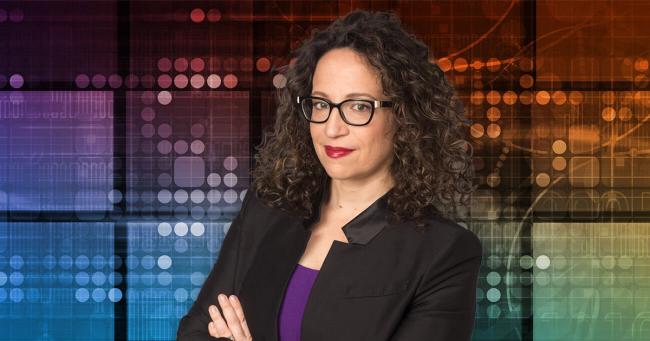2. februar 2022
Six drivers for change

By ANDERS GRIMSTAD (Head of Tech Experiments) and ZUZANNA ZYGADLO-STENBERG (Technology Strategy Lead) We live in a new climate in […]
By ANDERS GRIMSTAD (Head of Tech Experiments) and ZUZANNA ZYGADLO-STENBERG (Technology Strategy Lead)
We live in a new climate in which disruption is normal. Together with Amy Webb and the Future Today Institute, Schibsted has identified six drivers for change that will specifically influence our future.
This article was first published in Schibsted Future Report 2022.
Changing demographics and society
Significant societal and cultural change will shift the face of the consumer and the cultural environment. Migration, combined with falling birth rates, is changing the Nordics. Immigration, while necessary to sustain population levels, is challenging countries to integrate these new residents fully. Language barriers are growing.
In addition, younger generations influence more purchase decisions and set new expectations for experiences that seamlessly flow from physical to digital and back. Gen Z is entering the workforce with a weaker economic outlook and concerns about their ability to own their home. This will impact consumption patterns and workplace cultures.
Changing consumer expectations may force Nordic companies to evaluate their business models across the core industries, while the changing political environment may shift regulation in the markets where they operate.
Significant trends:
- New generations of consumers
- Increased migration.
- Globally eroding trust in media
- Sustainability.
Artificial intelligence advancements
Artificial intelligence is changing the value we can extract from data and the nature of our interactions. AI represents the third era of computing and is used across most industries. The convergence of ground-breaking research, business use cases, the explosive growth of data, and improvements in computing power and storage enable AI advances. The global artificial intelligence market is expected to grow at a CAGR of 42.2 percent from 2021 to 2027.
AI represents a significant opportunity and serious risk in the forms of automating content versioning, deploying new forms of media and entertainment, developing shared efficiencies across portfolio brands and the potential spread of misinformation. AI advancements may create new content opportunities, but it also forces companies to determine how to address a growing category of experiences that aren’t “real” or “fake” but generated, manipulated or synthetic. AI dramatically impacts the future of media.
Significant trends:
- GPT -3 (advanced language models) evolution.
- Synthetic media applications.
- New realities (AR/VR/XR).
- Algorithm marketplaces.
Move to distributed consumption
From cars to clothes to entertainment, consumers turn to access over ownership. Distributed consumption models are shifting the power dynamics in the relationship between companies and customers. As consumers move away from ownership of assets, subscription models enable them to buy access but at a cost; when subscriptions lapse, users don’t retain anything.
Governments and consumers are driving the adoption of the circular economy. Beyond sustainability, these models can drive deeper engagement with customers and help a brand gain greater control over the resale market for its products. Significant growth and investment in the area, moving products away from classified-like marketplaces and into branded resale experiences. Fractional ownership creates opportunities for affordable stakes in assets that would otherwise be out of reach for many. Still, these markets are driving asset prices higher as they spark speculative investing.
Significant trends:
- Subscription models/D2C economy
- Subscription models for news
- Circular economy
- Fractional ownership.
Financial, contract and verification technologies
The basis for trust in interactions is shifting –including how we authenticate who we are and verify what we buy. Technology facilitates trusted interactions through decentralisation and reduces the trust required between parties. These shifts trust to the technology structure itself. Trust in brands may only come if they carry a verification seal backed by data we can inspect. Consumers will expect companies to adopt more of these technologies to reduce friction and make transparent information about product origin.
Despite the growth in platforms and apps, the promise of decentralisation is not being realised globally. Services are beginning to use geo-blocking to limit access and prevent conflicts with sanctioned countries. A digital divide is growing — who you are and where you are, dictates what technology you can use.
By shaping the future of interactions, these technologies create opportunities for new services and significant early-mover advantages due to the investment and network effects required.
Significant trends:
- Purpose-built blockchains.
- Smart contracts.
- Decentralised social networks.
- Verification and provenance.
Optimising decisions and discovery
Algorithms are changing how we search for information, make decisions, and even discover new sources and ideas. New technologies and trends will impact how consumers find media and services — and how they behave once that happens.
Changes in decision-making and discovery could disintermediate companies like Schibsted from their customers. This is an area of vulnerability for Schibsted – and Scandinavia in general – compared with global tech players driving innovation in these trends. At the same time, there are meaningful opportunities for anyone who can successfully identify a new product.
Search and discovery define the first steps in a customer journey. As customers adopt new ways of finding information and making decisions, gatekeepers will significantly influence that path. They may exclude other brands as sources or their sites as destinations.
Significant trends:
- Natural language search
- Non-text search
- Personalised versioning in news
- One-to-few publishing
Growth of enabling technologies
Digital infrastructure that demonstrates an understanding of the customer and eliminates friction is shifting expectations. Enabling technologies drive radical innovation and new capabilities. Circuit boards, communications satellites and the internet are three key enabling technologies that gave rise to computers and smartphones, the entertainment industry and three of the most valuable companies globally (Apple, Microsoft and Amazon).
A host of new enabling technologies will shift the consumer and enterprise markets once again in the coming decade. As 5G and 6G networks are deployed, supply chains and retail operations are digitised, and climate change forces the fast adoption of smart grid management.
These technologies create foundational capabilities for all digital businesses, but tech players may have a first-mover advantage and ultimately disintermediate smaller players from customers.
Significant trends:
- Emerging consumer devices
- Next-gen wireless
- Automated logistics
- Smart grid management.
This article was first published in Schibsted Future Report 2022.



